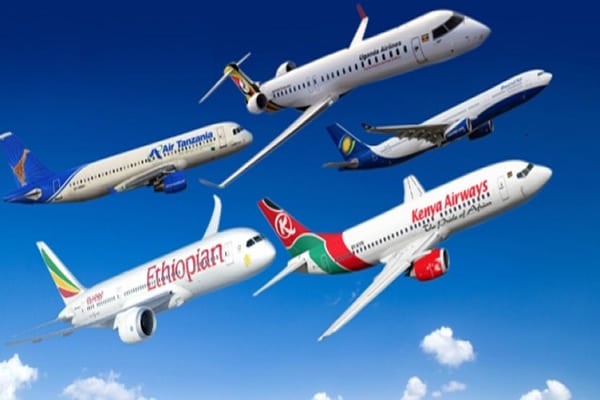- The report reveals huge differences in the size and structure of the debts of airlines. This suggests that a one-size-fits-all solution may not be appropriate to address their liquidity challenges. Financial support must therefore be tailored to the specific features of airlines.
- The report focuses on the indebtedness of airlines to banks, financial institutions, aircraft leasing companies and aircraft manufacturers.
The Economic Commission for Africa (ECA) and the African Airlines Association (AFRAA) have published a report on the financial impact of COVID-19 pandemic on African airlines and insights for the recovery from the liquidity crisis. This follows a survey that was jointly conducted by the two organisations to quantify the indebtedness of African airlines from COVID-19 impacts which forms basis for campaigns for the much-needed financial support.
Entitled: “Policy research paper COVID-19 and African airlines overcoming a liquidity crisis,” the report focuses on the indebtedness of airlines to banks, financial institutions, aircraft leasing companies and aircraft manufacturers. It therefore sheds light on the financing options and cost structures of the airlines. The value addition of the paper lies in its overarching perspective, which consists in analysing, through a financing lens, the COVID-19-induced challenges faced by African airlines and also the efforts undertaken to address these challenges.
The report reveals huge differences in the size and structure of the debts of airlines. This suggests that a one-size-fits-all solution may not be appropriate to address their liquidity challenges. Financial support must therefore be tailored to the specific features of airlines.
AFRAA’s Secretary General, Mr. Abdérahmane Berthé stated: “AFRAA, in collaboration with industry stakeholders and air transport organizations, continues to advocate for direct government support for airlines and for them to create a platform to coordinate their efforts towards the survival of the industry, in particular by linking airlines and financial institutions and facilitating access to available funds.” AFRAA has further made appeals to development finance institutions to created facilities to help mitigate the impact of the pandemic on vital sectors of the economies of countries on the continent.
AFRAA estimates that African airlines made a revenue loss of US$10.21 billion in 2020 due to the impacts of the pandemic. “Financial support to the industry is critical for survival. Some of the measures that we are appealing to governments to implement include: providing grants, loans and loan guarantees, issuing equity and also deferring or waiving payments of debts, rents, charges and taxes by airlines.” added Mr. Berthé.
The report further articulates strategies and plans for the survival, recovery and sustainability of the industry. While the aviation system is multidimensional the report focuses on airlines, many of which are facing insolvency as their operations have ground to a halt as a result of travel restrictions to curb the spread of the pandemic.
Link to download the published report:
EN: https://repository.uneca.org/handle/10855/43917
FR: https://repository.uneca.org/handle/10855/43918
SOURCE: African Airlines Association.

